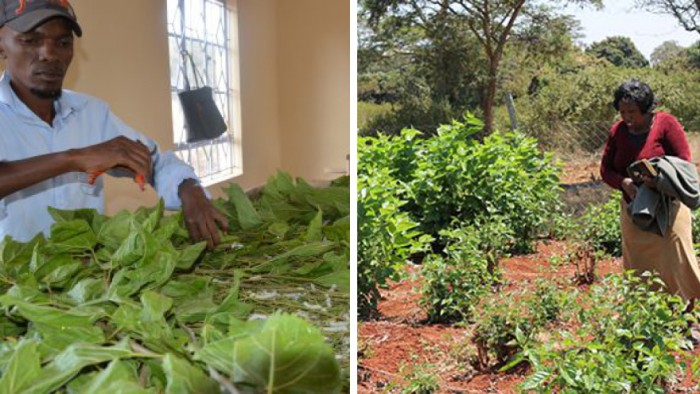
Kenyan farmers have traditionally grown tea, coffee and maize. But in recent years, unpredicatble weather and disease have produced low crop yields, which have been particularly devastating for small-scale farmers.
Sericulture – the rearing of silkworms for the production of raw silk – is becoming an appealing alternative farming practice for a few Kenyan farmers. Sericulture is less susceptible to erratic weather conditions because mulberry trees are hardy and require little water. The leaves of the mulberry tree are the staple diet of the silkworm.
Realising the potential economic impact of sericulture, the Kenyan government in collaboration with the Japan International Cooperation Agency (JICA) established the National Sericulture Research Centre this year at the Kenya Agricultural & Livestock Research Organisation (KALRO).
While conducting research and outreach activities, the centre aims to encourage more farmers to get involved in sericulture by opening ten centres around the country that educate and distribute silkworm eggs, mulberry seedlings and silkworm cocoons.
In Kenya, there are currently 600 farmers involved in the growing of mulberry trees to feed the worms and only 50 of them are raising silkworms. One farmer, Emily Bunoro, from Shiseno village in Kakamega province, West Kenya currently has over 10 000 silk worms spread on three trays in her living room.
I can say I make double what I used to make from maize farming and I use less energy and resources.” – Emily Bunoro.
Bunoro told Standard Digital that since becoming a sericulturist, she has been able to take care of herself and her family and that she has also leased a bigger plot of land to expand the project.
Kenyan’s farming raw silk can expect to earn 12 000 Kenyan shillings ($112) for 30 kilograms of silk.






